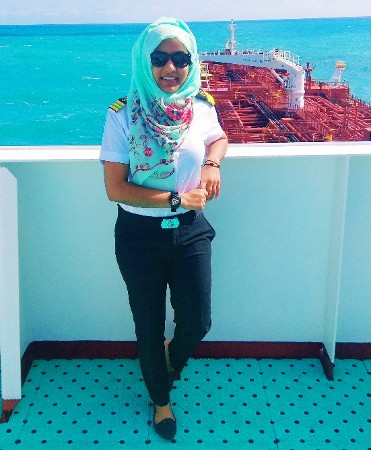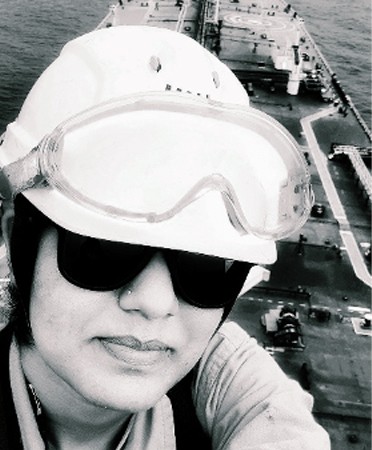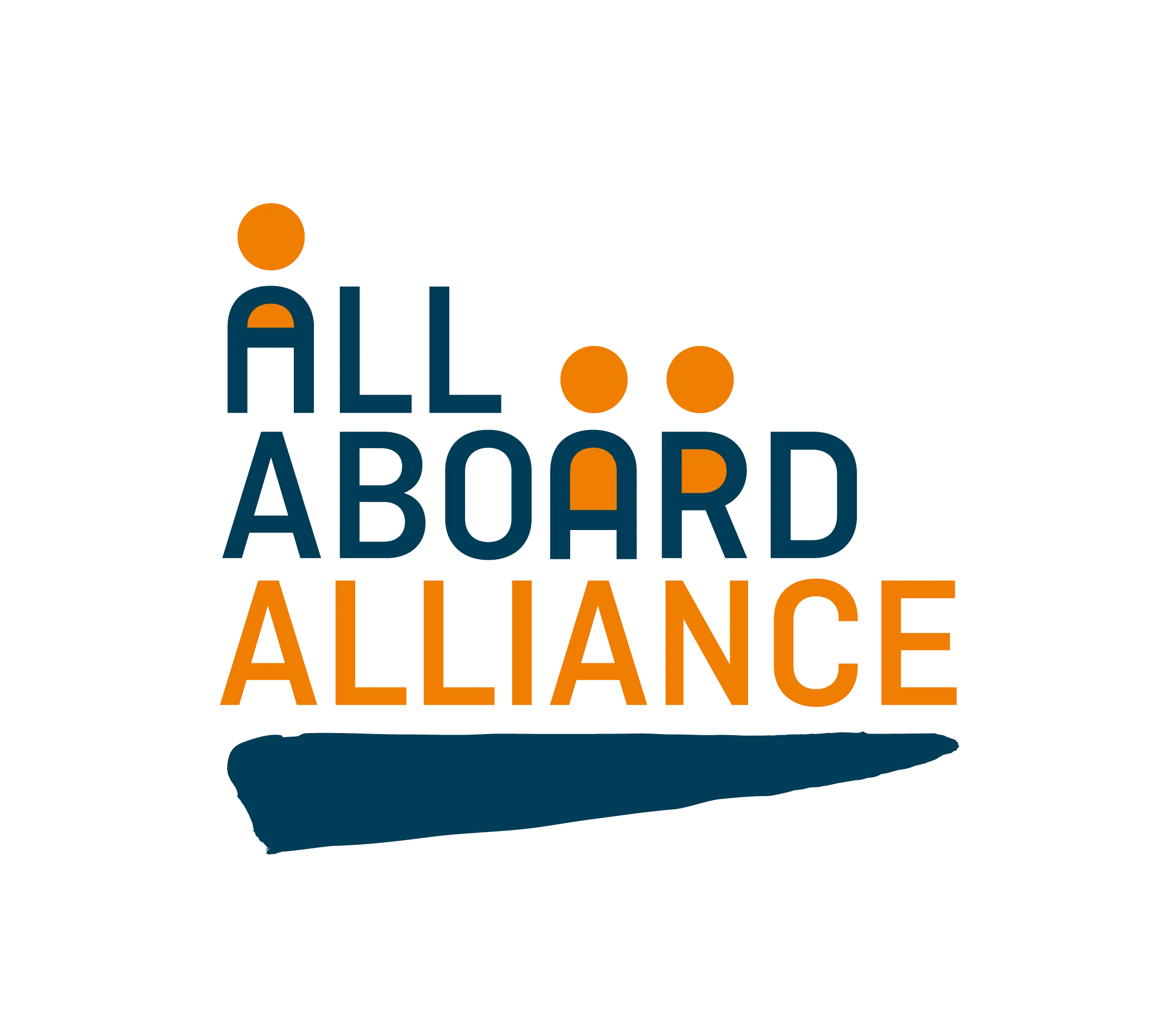1. Why did you choose a career in seafaring and when did you start sailing?
I always wanted to work in a profession which rewards full commitment with self-satisfaction. That meant a career which would provide practical work experience, thought-provoking tasks, the chance to travel, interaction with people of different cultures and attractive pay.
While exploring things that might offer all this, I learnt about the Merchant Navy, and the more I researched it the more I inclined towards it.
I had no idea how to start, as nobody among my family or friends had ever been a seafarer, but some more research and a successful application took me to the Academy of Maritime Education and Training (“AMET”) in Chennai, where I completed my pre sea training, later joining my first ship in 2014.
2. What can you remember from your first trip as a Trainee Electro Technical Officer?
Tanker “DESH SHANTI” was my first vessel as a Trainee ETO, and will always be memorable.
My family and close friends came to see me off, and all knew of course that for the next couple of months I was going away from my home ashore to a new home at sea. I had a whole mix of feelings, and tears were rolling as I was going to be away from my family and in a new world altogether.
I said some sad goodbyes, before starting this new chapter in my life, yet at the same time I was very happy, as my dream was coming true.
I was amazed when I first saw the vessel. She was huge, and also beautiful. On the very first time when my feet touched the gangway, my heart was thumping with excitement. That precise moment is one that I will never forget.
My mentor was the very senior and knowledgeable ship’s ETO Mr. Jagdish Prasad Singh, who we all respectfully called JP Sir, for short.
For the first month he asked me to help him by just observing. That was a bit frustrating for me, because, temperamentally, and also being fresh to the job, I was very eager to get stuck in myself. One thing among many that I observed was that, while he was senior and must have done every single task a great many times before, he never compromised on safety. So the first thing I learned on board was that it is safety first, and that you are responsible for your own safety.
I think I got to grips with things pretty quickly, and after that first month I was given some small, routine jobs, all under JP Sir’s supervision. JP Sir was strict, but I knew that was for my own good. He taught me many things and I was lucky to have him as a mentor on my first ship.
I served there for eight months, gained much practical and also safety knowledge, made some good friends and when time allowed I was able to witness some very beautiful sunsets and sunrises, and returned home with many stories to share with family and friends.
3. Where did you complete your technical and maritime training?
I completed all my technical training (B. Tech.) and maritime training (the ETO course, where I was best in class) at AMET.
4. What has been your most memorable voyage?
My first contract as a certified ETO was on the VLCC “DESH VIRAT”.
Before joining the ship, I was a bit apprehensive. I was confident, but still felt the sharp edge of nerves.
My very first day was really hectic, involving successfully troubleshooting a problem with the main air compressor. The ship’s staff were very helpful and totally professional, and afterwards in my appraisal the Chief Engineer wrote “Although she is a first time ETO, she has proved herself.” After that, everything seemed to slot into place, my nerves disappeared and the eight months of this my most memorable voyage passed very quickly indeed.
5. What has been your most difficult experience?
My father is my hero, and his words are a major morale-booster. He always says “Himmat E Marda, Maddad E khuda”, which means “God helps those who help themselves.”
With this as part of my own philosophy, I am fortunate to be able to say that, so far, there has been no experience that I have found too difficult. I have always believed in myself, and in god, and think I have always learnt something from tough situations and made myself better prepared and stronger.
Some days on board can be stressful, and after any such I generally put on some good music and have a hair massage and some black coffee. After any particularly difficult time, there is always the chance, and the means, to unwind.
6. What are the challenges you have faced on board as a woman seafarer?
A seafarer’s job is challenging in itself, and being a woman is just another dimension. In my everyday work I have many challenges as a seafarer, but not as a woman. All such are just part of our everyday life at sea, and we, all of us, overcome them by knowledge, experience and self-confidence.
Sometimes, though, as the only woman on board, there are inevitably personal and maybe also emotional issues that I cannot share. This sometimes gives rise to a feeling of loneliness. I deal with that by personalising my cabin, for example with many pictures of my family, friends and loved ones. Seeing those always bring a big smile back, and I remember and visualise the very happy moments captured in the photos.
But that is the only gender-based problem that I have had. Things are changing in the industry. I have met very few people indeed with what might be called a narrow mentality. Most of my crewmates have been very professional and generous, and there is nowadays far, far more positivity towards women at sea.
7. What do you enjoy most about working at sea?
I enjoy the self-satisfaction that I get. I am happy that I joined a profession where the work and environment interest me so very much.
Some of the cherries on the cake are beautiful ocean views, visiting many other countries, and also being away from urban noise for a few months, which I have found allows time for my mind to rejuvenate.
8. Tell us what a typical day at sea looks like for you
I am an early to bed, early to rise person. My day begins at around 5 am, with prayer and meditation. It is a great way to start the day. Then I go outside my cabin, on the accommodation deck, and (if the weather is fine) I will admire a beautiful sunrise while breathing in the fresh sea breeze and simply enjoying nature. That is a beautiful start to the day, and full of positive energy.
After breakfast I go to the Engine Room and our working day starts with a toolbox meeting, when we discuss our planned jobs, with safety as the most important aspect. Between our bouts of work we have tea and lunch breaks, when we all share around how our day is going and get suggestions from our teammates.
After the day ends I like to spend my spare time working out at the gym, talking to family and friends and planning for the next day.
9. If you ever changed to working ashore, what would you miss most about working at sea?
I worked ashore for some time before I went to sea, and I know that, like most things in life, there are pluses and minuses.
But I love my life at sea. Learning never stops, on board ship. During every contract, I learn something new every day. There is so much challenging, practical work experience, and mine is the kind of job profile that I really like.
I would miss so very many things if I came ashore, such as the intimacy with pure nature that I have while out at sea, the clear nighttime skies full of stars, the ocean with its combination of power and beauty and the uninterrupted sunsets and sunrises.
10. What changes do you believe the maritime industry needs to implement in order to improve gender equality?
In the six years that I have been in the shipping industry things have changed a lot. Perception towards female seafarers has altered, thanks partly to companies like Synergy and others, but still a few companies are hesitant to take on women for seagoing roles.
Further change is inevitable, though, and it is coming. Plainly, all companies, and especially the big and household names, should stand for gender equality, and not only at conference gatherings but in real life, too. There is a lot less – but there should be no – discrimination based on gender, and everyone should be thought of and treated, gender-neutrally, simply as a seafarer.
Once that becomes routine, with all companies open to taking on women for a life at sea, new generation girls who want to become part of the shipping industry can join it with positive confidence.
11. How does sailing with Synergy differ from other shipping companies?
I am not far into my career, so it is hard to make comparisons. But I can say for sure that Synergy is a progressive company. They will never discriminate based on gender. I felt that the very first time I was interviewed. They just assess you and your potential, and select on that basis.
On board, the work culture is likewise very professional. Synergy maintains high safety standards across its fleet – difficult, for such a big company, but they achieve it.
When sailing, I always think that Synergy takes care of every person employed by them. This makes me feel proud and special.
12. It is still fairly rare to find women seafarers, but things are changing for the better. Please share your views on this.
As I mentioned above, things are indeed changing for the better. I have experienced this personally, in many ways.
I was best in class in my pre sea training, but, still, all the companies who came for campus selection rejected me. It was very noticeable. I would pass the written tests and be shortlisted for the interview stage, but when they saw a girl, I saw the reaction.
I stayed in Mumbai for months, knocking on every company’s door for interviews until finally Shipping Corporation of India gave me a break, bringing to an end that difficult phase of my career. Now, when my friends and juniors call me to share good news of their own selection, I am so very pleased to hear it.
Things are certainly changing, over time. Most of our male colleagues have accepted the change, and most of the rest are starting to, a simple process of thinking in an open-minded way.
13. What advice would you give to anyone considering a career at sea, especially young women seafarers?
Straightforwardly, it is great. If you want to be in close proximity to practical career options, join shipping.
Remember though that shipping is a challenging career. You need to be physically fit and mentally strong. Your determination should be rock solid. Your mindset should be positive.
If you choose shipping as a career, forget that you are female, or male, and just commit yourself to this profession as a seafarer. Stopping unintentionally discriminating against yourself, on whatever basis, is a good part of stopping people likewise discriminating against you. Be part of the change that you want to see.
14. Share something interesting about yourself that we might not know.
This is a very interesting question, which nobody has asked until now.
One good answer is that, since childhood, I was a bit like a son in my family. I was tomboyish, which in one definition means that I enjoyed rough, noisy activities of a type traditionally associated with boys. Yes, that was me. But it did not prevent the shipping industry recognising my female side by making me India’s first certified lady ETO. I have changed a lot since I became a seafarer, and I love those changes. However, on board I never think about my gender. I just perform my job, as I am expected to.







